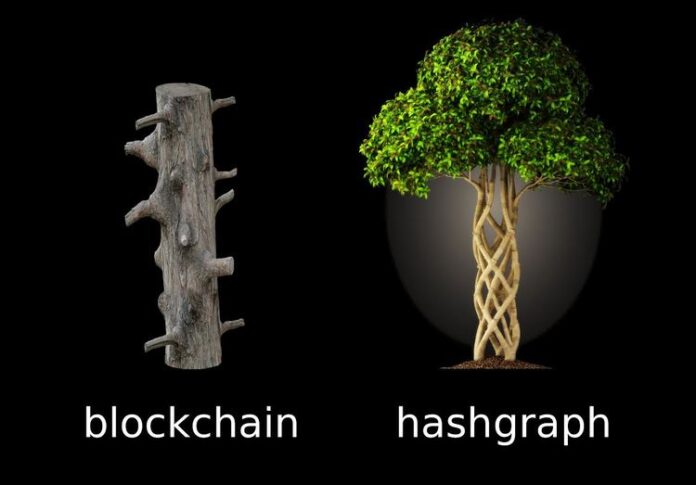
Hashgraph is holding it’s first Dublin Meetup next Wednesday 13th December. The location is Bank of Ireland’s Workbench at Montrose. This is on the Stillorgan Road opposite UCD.
Speakers include Conor O’Higgins from Hashgraph and Joe Arthur, CEO of Mingo.
Hashgraph is a data structure and consensus algorithm that claims to be faster, fairer, and more secure than blockchain.
Hashgraph uses two special techniques (1) Gossip about Gossip and (2) Virtual Voting to achieve fast, fair and secure consensus.
Gossip is a well-known computer science term, which can be defined as calling any random node and telling that node everything you know, that it does not know. In distributed ledger technology, the “baseline” or minimum bandwidth required is that the transactions go to every node. A gossip protocol can achieve this transfer of information / syncing process exponentially fast. Gossip about Gossip refers to attaching a small additional amount of information to this Gossip / transaction payload, which are two hashes containing the last two people talked to (hence, gossiping about the information gossiped). Using this information, a Hashgraph can be built and constantly updated as more information is gossiped, on each node.
Once the Hashgraph is built, it is extremely easy to know what a node would vote, because we know what each node knows, and when they knew it. We now can use this data as an input to a 30 year old voting algorithm (which have strong security guarantees, maths proofs of being Asynchronous Byzantine Fault Tolerant but typically lack the speed necessary for real world implementation), and know which transactions have reached consensus quickly.
The result of using this methodology is that we get the benefit of 30 year old voting algorithms which have have strong math proofs of being Asynchronous Byzantine Fault Tolerant (meaning that we know when we will achieve consensus, guaranteed, and our math proofs make no assumptions about the speed of the internet, due to firewalls, ddos attacks, viruses or botnets), speed (due to use of a gossip protocol) and fair ordering and time stamping on every event.
Hashgraph is different also on its consensus process. There are five different approaches to reaching distributed consensus. Firstly we have Proof-of-Work, which started with Bitcoin. The second is leader-based systems like PBFT, Raft, and Paxos. Then there is economy-based, commonly referred to as Proof-of-Stake, where forgers stake cryptocurrency on votes in order to reach consensus. Then, there’s voting-based which are too slow to be used in real systems. Finally there’s Hashgraph, which uses virtual voting and is incredibly efficient because it does not actually send any votes over the internet.
Finally Hashgraph does not pitch itself against Blockchain. The pitching of Hashgraph against Blockchain is a sensationalist angle that Swirlds (the organisation responsible for the technology) does not endorse. While there are some advantages over Blockchain based consensus, Hashgraph’s intention is not to diminish the significance of Blockchain technology. It considers Blockchain to be like a capable older brother who graciously paved the way by bringing the power of Distributed Ledger Technology to the light of day. There is no reason that blockchain and Hashgraph couldn’t live together. While it is true that Hashgraph has won some enterprise use cases against Blockchain based solutions (e.g. https://www.cujournal.com/news/culedger-swirlds-launch-hashgraph-technology-partnership), blockchain has a massive network effect which Hashgraph admires.
Hashgraph and Blockchain enthusiasts are all welcome.
Coffee / Tea and biscuits at 6pm. Kickoff at 630pm and finishes at 8pm on the dot,
To register please use this LINK










